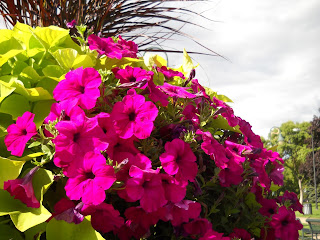"The sun strikes deep into the wells of the sky: depends on how you look at it -- for someone it is the hour to be shot at dawn, for me the infinite gift of red, of violet and blush-graying white above the bridge across the Loireo."
Tomaz Salamun
Poetry is a universal dialogue that invites voices from every corner of the world. It embodies the desire to explore emotions and new realms.
Poetry invites the mind to set itself free from its prison, but it is also a medium that can understand and console us. If I had to choose an anthology out of all the ones I read this year, I would pick Edward Hirsch's "Poet's Choice."
Most of the poems he selected landed before my eyes just when I needed them - as if I had been destined to read them. Edward Hirsch brought together the voices of poets from all over the world without being biased by gender, country of origin, popularity, political ideas, religion or social class. Edward Hirsch was inspired and motivated by his passion for poetry.
I was spellbound by Hirsch's essays on the poets and their works. I admire his wit, sensitivity and open-minded approach. I savored each and every sentence he wrote and was compelled to read them more than once. This book is a masterpiece. It unleashes the vast universe of human experience.
Not only did I fall in love with the poems he selected, but I also experienced a strong kinship to most of these poets.
Now let me share with you Edward Hirsch's quotes on poetry:
"I have tried to remember throughout that poetry is made by flesh-and-blood human beings. It is a bloody art. It lives on a human scale and thrives when it is passed from hand to hand."
"Poetry is a means of exchange, a form of reciprocity, a magic to be shared, a gift. Poetry saves something precious in the world from vanishing."
"Poetry challenges us to find meaning in the midst of suffering. Poetry answers this challenge. It puts us in touch with ourselves. It sends us messages from the interior and also connects us to others. It is intimate and secretive; it is generously collective."
"Poems defend the importance of individual lives and rebel at the way individuals are dwarfed by mass culture."
"I have carried poetry with me like a flashlight-- how many small books have I crammed into my pockets?-- and used it to illuminate other lives, other worlds. I discovered myself in discovering others, and I have lived with these poems until they have become part of the air that I breathe. I hope they will become part of the reader's world too."
Some of the poets he included in this book are Jorge Luis Borges, Sappho, Blaga Dimitrova, Charlotte Mew, W.B. Yeats, Rainer Maria Rilke, Czeslaw Milosz, Radmila Lazic, Primo Levi, Taha Muhammad Ali, Yehuda Amichai, Kadya Molodowsky, Avraham Ben Yitzhak, Saadi Youssef, Cesar Vallejo, Miguel Hernandez, Pablo Neruda, Julia de Burgos, Alfonsina Storni, Octavio Paz, Amy Lowell, Naomi Nye, Wallace Stevens, Jane Mayhall, Dorothea Tanning, Kathleen Raine, Mark Strand, William Carlos Williams, Jane Mayhall, William Matthews, Robert Bly and many others.
I believe there is something urgent about poetry, something that rescues us from our own uncertainty...
Ars Poetica
Write each of your poems
as if it were your last.
In this century, saturated with strontium,
charged with terrorism,
flying with supersonic speed,
death comes with terrifying suddenness.
Send each of your words
like a last letter before execution,
a call carved on a prison wall.
You have no right to lie,
no right to play pretty little games.
You simply won't have time
to correct your mistakes.
Write each of your poems,
tersely, mercilessly,
with blood -- as if it were your last.
Blaga Dimitrova (Translated by Ludmilla G. Popova-Wightman)









